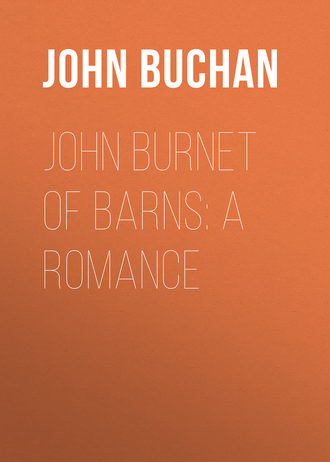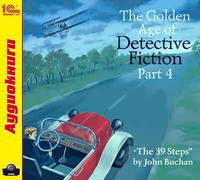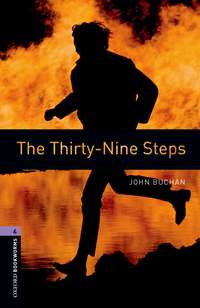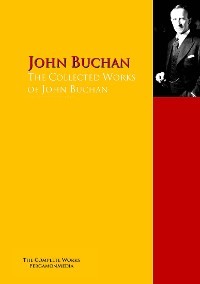 полная версия
полная версияJohn Burnet of Barns: A Romance
One blustering day, the first Monday, I think, after the New Year, when the ice was beginning to melt from the burns and a wet, cold wind from the north-west was blowing, I rode down to Peebles to settle some matters about money with Saunders Blackett, who had managed my father's affairs and was now intrusted with mine. All things were done to my satisfaction; so bethinking myself that the way to Barns was cold and long and that it was yet early in the afternoon, being scarce four o'clock, I found myself thinking pleasantly of the warm inn-parlour of the Pegasus, so thither I went.
The Pegasus or "Peg" Inn stands at the corner of the Northgate and the High Street, a black-gabled building, once the town-house of the Govans of Cardrona, and still retaining marks of its gentility in the arms carved above the door. A great sign flapped in the wind, bearing on a white ground a gorgeous representation of a winged horse soaring through clouds. The landlord at this time was one Horsbrock, a portly, well-looking man, who claimed to be kin to the Horsbrocks of that ilk and held his chin two inches higher in consequence. The place was famed in all the country round for good wine and comfort.
I stabled my horse and, bidding the host bring me a bottle of Rhenish (so fine a thing it is to have succeeded to lands and money), I went into the low-ceilinged room where the company sat. It was panelled in a darkish wood, and hung round with old weapons, halberds and falchions and what not, which glimmered brightly in the firelight. A narrow window gave it light, but now it sufficed only to show the grey winter dusk coming swiftly on. Around the fire sat some few of the men of Peebles, warming themselves and discussing the landlord's ale and the characters of their neighbours.
They rose to give me welcome when I entered, for my name and family were well known in the countryside.
"It's awfu' weather for man and beast, Laird," said an old man with a bent back, but still hale and hearty in the face. "A snawy winter I can abide, and a wet yin, but drizzlin', dreepin', seepin' weather wi' a wind that taks the heart out o' ye is mair than my patience can stand."
"You have little need to speak, you folk," I said, "living in a well-paved town with stones beneath your feet and nothing more to do than go round a street corner all day. Up at Barns, with Tweed swirling in at the yard gate, and the stables flowing like a linn, and the wind playing cantrips day and night in and out of the windows, you might talk."
"Ay, but, good sir," put in a thin voice which came from a little man I had seen at the bowling-green, "ye may thank the Lord for a roof abune your heids and dry claes to put on, when sae many godly folks are hiding like pelicans in the wilderness among the high hills and deep mosses. I bless the Lord that my faither, that sant o' the Kirk, is not living in thae evil times. He was a man o' a truly great spirit, and had he been alive, I'se warrant he wad hae been awa to join them. He was aye strong on his conscience. 'John Look-up' so the godless called him. 'John Look-up,' said my mother, 'ye'll never be pleased till we're a' joltin' in a cairt to the Grassmarket o' Edinburgh. And a braw sicht ye'll be, hanging there like a hoodie-craw wi' a' your bairns aside ye.' Ay, these were often her words, for she had a sarcastic tongue."
"Jock Look-up, my man," said another, "I kenned your faither a' his days, and he was na the man to hang. He lookit up and he lookit a' ways. He was yin whae could baith watch and pray. Gin ye were mair like him, ye wad be a mair thrivin' man."
"Aboot the hill-folk," said the old man who had first spoken, drinking his ale and turning up the measure to see that no more was left, "did ye ever hear o' my son Francie and what happened to him when he gaed awa to Moffat wi' 'oo'? He gaed ower by Traquair and keepit the road till he got to Moffat, for he had a horse that wasna ower sure o' its feet on the hills. But when he had it a' sellt, whae does he meet in wi' but Wull Hislop the travelling packman, whae's sair needing a beast. So Francie sells him his horse and comes aff hame walking ower the muirs. He gaed up Moffat Water and ower the muckle hill they ca' Corriefragauns, and got on nane sae bad till he cam to the awfu' craigs abune Loch Skene. He was walking briskly, thinking o' hame and the siller in his pouch and how he wad win to Peebles that nicht, when he saw afore him the awfu'est sicht that ever he had seen. It was a man o' maybe the same heicht as himsel, wi' a heid of red hair, and nae claes to speak o', but just a kind o' clout about his middle. He began to speak in an outlandish voice and Francie kenned at yince that he maun be yin o' thae Hieland deevils brocht doun to hunt up the Whigs. He was for Francie's money, and he oot wi' a big knife and flashed it up and doun. But this was no to Francie's liking. 'Put that doun, ye ill-looking deevil,' says he, 'ye'll find I'm nane o' your hill-folk, but an honest man frae Peebles wi' a nieve as hard as your heid's saft, and if ye dinna let me by, I'll put ye in the loch as sure as my name's Francie Trummle.' The body understood him brawly, and wi' a grunt slunk aff among the heather, and Francie had nae mair bother wi' him. But O! it's an awfu' thing to think o' men o' your ain blood hunted and killed wi' thae foreign craturs. It maks me half-mindit to turn Whig mysel."
"Dinna fash yoursel, Maister Trummle," said a younger man, a farmer by his looks, "ye're better bidin' in peace and quiet at hame. The Lord never meant folk to gang among hills and peat-bogs, unless after sheep. It's clean against the order o' things. But there's yae thing that reconciles me to this Whig-hunting. They're maistly wast-country folk, and wast-country folk are an ill lot, aye shoving their nebs where they're no want it. There's no mony Whigs in Tweeddale. Na, na, they're ower canny."
Master Turnbull made as if he would have answered, when a clatter of feet was heard in the passage, and the door opened. Two men entered, one a great swarthy fellow well known for his poaching escapades when the salmon came up the water, and the other, Peter Crustcrackit the tailor. They did not enter in company, for Peter swaggered in with as gallant an air as two bent legs and a small body could permit, while the other slunk in with a half-apologetic look, glancing keenly round to see who were the other occupants of the room.
"The 'Peg' is honoured with your company tonight, I see," said Peter, making a bow to me. "'Tis the finest gathering that I remember: the Laird o' Barns, worthy Maister Trumbull, myself, and my honoured freend, Maister Simon Doolittle."
The black fisher lifted his face from the ale which the landlord had brought. "Your guid health, gentlemen. I'm prood o' your company, though I'm no just fit for't, since I'm no half an 'oor oot o' the Dookit Pool."
All eyes were turned to the speaker, and we saw that his clothes hung limp and wet.
"And pray, how did you get there, Maister Doolittle? Was't by the working o' Providence, or the wiles o' sinfu' man?"
"A mixture o' baith. I took a bit daunder up Tweed to the Castle Rock to see how the water was rinnin'. It's been raither grimily for fishin' o' late. Ye a' ken the rocks that they're no exactly the sort o' place that a man wad choose for dancin' a reel in tackety boots. Weel, I was admiring the works o' God as manifested in a big, deep, swirlin' hole, when afore ever I kenned I was admirin' the hole frae the middle o't. I was gey near chokit wi' Tweed water, but I wabbled a bit, and syne grippit a birk and held on."
There was a pause and he took a draught of ale.
"Weel, I roared as loud as I could, and the auld runt whae bides i' the Castle heard me. He cam doun and askit me what was wrang. 'Wrang,' says I. 'If ye dinna ca' ten feet o' water and you no able to soom, wrang, I just wis ye were here yoursel.' So he gangs cannily back and brings anither man to look at me; and the twae thocht for a while, and then each grippit an airm and after a gey wammlin' I got oot. I was angry at their delay, for I couldna hae held on muckle langer, so I kickit them baith an' cam aff here. I've muckle need o' yill, fur I feel as if I had eaten ten pund o' snaw."
"Come nearer the fire, Simon," said one. "Ye're a muckle tried man."
"I'm a' that," said the brown-faced poacher, and relapsed into silence.
The lights were now lit in the streets of Peebles, as we could see by the glimmer through the windows; but in our room no lamp was needed, for the bright firelight was sufficient for a man to read a little book by. The great shadows danced on the wall, bent and crooked into a thousand phantasies; and the men by the fire nodded and spoke little. Then the old man Turnbull began an argument with the tailor about some clothes in which he said he had been cheated; and Peter Crustcrackit, never a quiet-tempered man, was rejoining with vigour. I heard only fragments of their talk, being taken up in dreaming of my future course, and when I should go to see the world.
The mild-mannered man, him they called John Look-up, was sleeping in his chair, and his jug of ale which he had emptied hung limply in his hand. In a little it fell to the floor and rolled beneath his chair; but the sleeper never stirred. The poacher sat shrouded in vapour, which the heat of the fire had brought out of his wet garments, and a mingled smell of damp cloth and burning wood filled the room. The discordant voices of the tailor and his antagonist rose and fell, now sinking to a mumbled whisper, and now rising to sharp recrimination. By and by they came to an end of their dispute, and silence reigned undisturbed; and I verily believe that in five minutes we should all have been sound asleep, had not something occurred to rouse us.
This was no less than the entrance of another guest. The door was flung open and a man entered, swaggering with a great air and bearing into the slumbrous place a breath of the outer world. He was the finest man I had ever seen, two inches and more taller than myself, who am not short, and clean made as a greyhound. His face was tanned a deep brown, and bare save for a yellow moustachio on his upper lip. His hair hung long and fine over his shoulders, setting off the erect poise of his head. He had removed his cloak and hat, and showed a dress of the height of fashion; his cravat was of delicate foreign lace and the sash around his middle of the finest silk. But what I marked especially were his features, the thin, straight nose, the well-bred chin, and the clear eyes; but for a certain weakness in the jaw I should have called it the handsomest face I had ever seen. More, it was a face that wis familiar to me. I had seen the like of it before; but where I could not tell, and I cudgelled my brains to think of it.
"Ah, my faith," said the stranger, speaking with a foreign accent, "what have we here? A room-full of sleepy citizens. Or drunk, egad, drunk, I believe."
And he walked over to where Peter Crustcrackit sat nodding, and stared in his face. Now the noise wakened the rest; and Peter also, who sitting up with a stupid air thought that he was still in the shop, and cried hurriedly, "What d'ye lack, sir? Silks or satins or plain kersey," and ran into a recital of his wares.
The newcomer looked at him with an amused smile. "It is not difficult to tell your profession, my friend. The ninth of a man."
Then he surveyed the rest of us in turn with his restless eyes, until his look fell upon me. He must have marked something about my appearance distinct from the others, for he bowed and addressed me politely.
"You are not one of these fellows, I think. May I ask the favour of your name? I have been long absent from this country and have forgot faces."
"You are welcome to it," said I. "They call me John Burnet – of Barns," I added, for the first time using my new-found title.
He crossed to my side in an instant and held out his hand. "Your hand, Master Burnet. You and I should be well known to each other, for we shall be near neighbours. You may have heard of Michael Veitch of Dawyck, him that was soldiering abroad. I am that same, returned like the prodigal from far countries."
Now I knew where I had seen the face before. It was but a coarse and manly counterpart of Marjory's, though I fancied that hers was still the braver and stronger, if all were told.
"I have often heard of you," I said, "and I am glad to be the first to bid you welcome to your own countryside. These are some men of the town, honest fellows, who come here for their evening ale."
"Your health, gentlemen," he cried, bowing to the company. "Landlord, bring ale and a bottle of your best Burgundy till I pledge these honest fellows."
"Eh, sirs," I heard Peter Crustcrackit mutter under his breath, "sic an invasion o' gentles. The Northgate o' Peebles micht be the High Street o' Embro', for a' the braw folk that are coming tae't. I maun think aboot shifting my shop."
It would be well on for eight o'clock ere Master Veitch and I left the Pegasus to ride homeward. The night was quieter and milder, and overhead a patch of clear sky showed the stars. He had with him two serving-men who carried his belongings, but they rode some little distance behind. He was full of questions about Dawyck and his kinsfolk there and the countryside around; so I must needs tell him something of what had passed between Marjory and myself. He seemed not ill-pleased. "What," he cried, "little Marjory, who was scarce higher than my knee when I left! To think that she should have grown into a woman already! And you say she is pretty?"
Which question gave me much opportunity for such talk as one must use when he feels the littleness of words.
Then he must ask me about myself, of my father, of whose death he was ignorant, and what I purposed to do. "For I doubt," said he, "that you will have but a dull time of it at Barns in that great desolate house. It little befits an active man to pine at home like a mouse in a cell."
So from one thing to another, he had me to tell him of all my desires, of how I longed above all things to travel and see the world; and he spoke to me in such a fashion that ere we had come to the ford of Tweed my intention was fixed to ride out like the Spanish Don to see what might befall me.
CHAPTER VIII
I TAKE LEAVE OF MY FRIENDS
The next month was, I think, the busiest in my life. For from the evening of my meeting with Michael Veitch my mind was firmly made up to go to travel abroad, and with this determination came all the countless troubles which a man must meet before he can leave his home. I was busy night and day, now down at Peebles, now riding up Manor and all over the Barns lands, seeing that all things were in right order ere my departure. I got together all the money I desired, and with drafts on the Dutch bankers, which the lawyer folk in Edinburgh got for me, I was in no danger of falling into poverty abroad.
On Tam Todd I laid the management of all things in my absence; and Tam, much impressed by his responsibility, though it was a task which he had really undertaken long before in the later years of my father's life, went about his work with a serious, preoccupied air, as of Atlas with the world on his shoulders. I had much ado in getting ready my baggage for the journey, for I wished to take little, being confident that I could buy all things needful abroad. Jean Morran, on the other hand, would have had me take half the plenishing of the house of Barns, from linen sheets to fresh-kirned butter, for I could not persuade her to think otherwise than that I was going into a desolate land among heathen savages.
Then I had to visit many folk up and down Tweed to take farewell; and I had so many letters given me to men of standing abroad, that, if I had delivered them all, I should have had to spend more time than I cared. One I valued more than any other – a letter written by Master Gilbert Burnet, of London, to a professor in the university of Leyden – which I hoped would bring me into the company of scholars. For I had changed my original intention of going to the wars, first, because I found on examination that, in my inmost heart, I had that hankering after learning which would never be sated save by a life with some facilities for study; second, because, now that I was the sole member of the house, it behooved me to bide on the land and see to it, and any such thing as soldiering would keep me away for too great a time. I sent, too, to the College Library at Glasgow, for all the books on the Low Countries to be had, and spent much profitable time reading of the history of the place, and how the land lay.
During these days I was much in the company of the new master of Dawyck, and a most delectable comrade I found him. He had a vast stock of tales and jests, collected in his travels, with which he would amuse his friends; he was something of a scholar, and could talk learnedly when he chose; and he was expert at all outdoor sports, pressing me hard at the sword-play, in which I prided myself on my skill. He was of a free, generous nature, and singularly courteous to all, high and low, rich and poor alike. Yet, with all these excellencies, there was much that I liked ill about him, for he was over-fond of resorting to the taverns at Peebles, where he would muddle his wits in the company of his inferiors. His life at Dawyck was none of the most regular, though, indeed, I have little cause to blame him, being none so good myself; though the vice of over-indulging in wine was one that Providence always mercifully kept me from.
He came perhaps every third day to Barns to ride with me in the haugh, and he would abide to supper-time, or even over night, making me fear for Marjory's peace of mind. To his sister he was most dutiful and kind, and I was glad to think that now the days might be more pleasant for her with her brother in the house. And it pleased me to think that when I went abroad, my lady would be left in no bad keeping.
The days, the short January days, passed quickly over my head, and, almost ere I knew, the time had come for my departure. And now, when the hour came so nigh, I felt some pain at the thought of leaving home and my beloved countryside for unknown places; though, to tell the truth, such thoughts were not ill to dispel by the contemplation of the pleasures in prospect. Yet it was with mingled feelings that I rode over to Dawyck on a sharp Monday afternoon to bid Marjory farewell.
I found her in the low, dim room, looking to the west, where she was wont to sit in winter. A great fire crackled cheerily on the hearth, and many little devices about the place showed a woman's hand. Holly, with scarlet berries, put colour into the sombre walls, and Marjory herself, brighter than any flower, made the firelight dull in the contrast; so fair she looked, as she greeted me, with her bright hair and unfathomable eyes.
"I have come to see you for the last time, Marjory," I said; "to-morrow I set out on my travels."
"I am vexed that you are going away," and she looked at me sadly; "it will be lonely in Tweeddale without you."
"My dear lass, I will not be long. Two years at the longest, and then I will be home to you, and travel no more. What say you, Marjory?"
"Your will be done, John. Yet I would I could have gone with you."
"I would you could, my dear," I said. "But that might scarce be. You would not like, I think, to sail on rough seas, or bide among towns and colleges. You love the woods too well."
"Wherever you were," said she, with her eyes drooped, "I would be content to be."
"But Marjory, lass," I spoke up cheerfully, for I feared to make her sad, "you would not like me to stay at home, when the world is so wide, and so many brave things to be seen."
"No, no. I have no love for folks who bide in the house like children. I would have you go and do gallantly, and come home full of fine tales. But where do you mean to go, and how will you pass your time?"
"Oh," said I, "I go first to Rotterdam, where I may reside for a while. Then I purpose to visit the college at Leyden, to study; for I would fain spend some portion of my time profitably. After that I know not what I will do, but be sure that I will be home within the two years. For, though I am blithe to set out, I doubt not that I will be blither to come back again."
"I trust you may not learn in those far-away places to look down on Tweeddale and the simple folks here. I doubt you may, John; for you are not a steadfast man," and, at this, she laughed and I blushed, for I thought of my conduct at Glasgow.
"Nay, nay," I answered; "I love you all too well for that. Though the Emperor of Cathay were to offer me all his treasure to bide away, I would come back. I would rather be a shepherd in Tweeddale than a noble in Spain."
"Brave words, John," she cried, "brave words! See you hold to them."
Then after that we fell to discussing Michael, and his ways of amusing himself; and I bade Marjory tell her brother to look in now and then at Barns to see how Tam Todd fared. Also I bade her tell him that it was my wish that he should hunt and fish over my lands as much as he pleased. "And see you keep him in order," I added, laughing, "lest he slip off to the wars again."
"Oh, John," she said, with a frightened look, "do not speak so. That is what I fear above all things, for he is restless, even here, and must ever be wandering from one place to another."
"Tut, my dear," I said; "Michael, be sure, is too honest a man to leave you again, when I am off, once I have left you in his care. Have no fear for him. But we are getting as dull as owls, and it is many days since I heard your voice. I pray you sing me a song, as you used to do in the old days. 'Twill be long ere I hear another."
She rose and went without a word to her harpsichord and struck a few notes. Now Marjory had a most wonderful voice, more like a linnet's than aught else, and she sang the old ballads very sweetly. But to-day she took none of them, but a brisk martial song, which pleased me marvellously well. I will set down the words as she sang them, for I have hummed them many a time to myself:
"Oh, if my love were sailor-bredAnd fared afar from home,In perilous lands, by shoal and sands,If he were sworn to roam,Then, O, I'd hie me to a ship,And sail upon the sea,And keep his side in wind and tideTo bear him company."And if he were a soldier gay,And tarried from the town,And sought in wars, through death and scars,To win for him renown,I'd place his colours in my breast,And ride by moor and lea,And win his side, there to abide,And bear him company."For sooth a maid, all unafraid,Should by her lover be,With wile and art to cheer his heart,And bear him company.""A fine promise, Marjory," I cried, "and some day I may claim its fulfilment. But who taught you the song?"
"Who but the Travelling Packman, or, maybe, the Wandering Jew?" she said, laughingly; and I knew this was the way of answer she used when she would not tell me anything. So, to this day, I know not whence she got the catch.
Then we parted, not without tears on her part, and blank misgivings on my own. For the vexed question came to disturb me, whether it was not mere self-gratification on my part thus to travel, and whether my more honourable place was not at home. But I banished the thoughts, for I knew how futile they were, and comforted my brave lass as best I could.
"Fare thee well, my love," I cried, as I mounted my horse, "and God defend you till I come again"; and, whenever I looked back, till I had passed the great avenue, I saw the glimmer of Marjory's dress, and felt pricked in the conscience for leaving her.
CHAPTER IX
I RIDE OUT ON MY TRAVELS AND FIND A COMPANION
It was on a fine sharp morning, early in February, that I finally bade good-bye to the folk at Barns and forded Tweed and rode out into the world. There was a snell feel in the air which fired my blood, and made me fit for anything which Providence might send. I was to ride Maisie as far as Leith, where I was to leave her with a man at the Harbour-Walk, who would send her back to Tweeddale; for I knew it would be a hard thing to get passage for a horse in the small ships which sailed between our land and the Low Countries at that time of year.
At the Lyne Water ford, Michael Veitch was waiting for me. He waved his hat cheerfully, and cried, "Good luck to you, John, and see that you bide not too long away." I told him of a few things which I wished him to see to, and then left him, riding up the little burn which comes down between the Meldon hills, and whither lies the road to Eddleston Water. When I was out of sight of him, I seemed to have left all my home behind me, and I grew almost sorrowful. At the top of the ridge I halted and looked back. There was Barns among its bare trees and frosted meadows, with Tweed winding past, and beyond, a silvery glint of the Manor coming down from its blue, cold hills. There was Scrape, with its long slopes clad in firs, and the grey house of Dawyck nestling at its foot. I saw the thin smoke curling up from the little village of Lyne, and Lyne Kirk standing on its whin-covered brae, and the bonny holms of Lyne Water, where I had often taken great baskets of trout. I must have stayed there, gazing, for half an hour; and, whenever I looked on the brown moors and woods, where I had wandered from boyhood, I felt sorrowful, whether I would or no.









